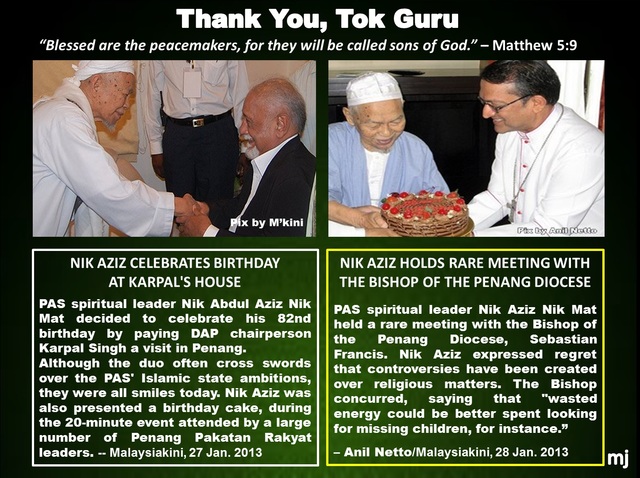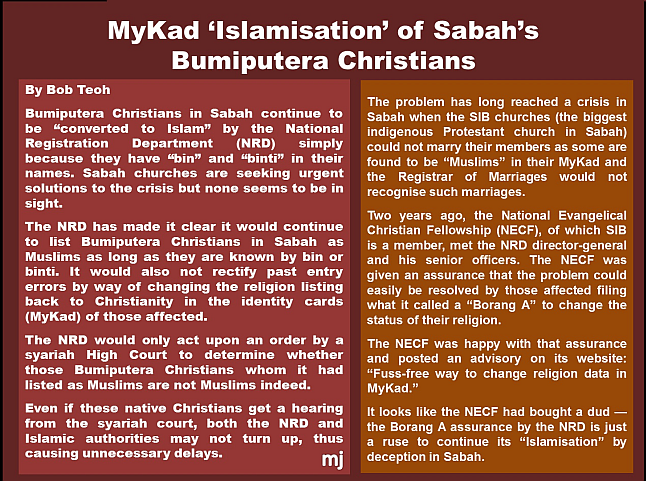— Pak Sako
CPI/The Malaysian Insider
Jan 08, 2013
JAN 8 — There are major contradictions in the claim that the word “Allah” belongs only to Muslims and Islam, and does not apply to non-Muslims and other religions (JAKIM), and in the insistence that non-Muslims must convert to Islam to use the word “Allah” (Perak Mufti Harussani Zakaria).
The contradictions are as follows:
1. If we disallow non-Muslims from using the word “Allah”, are we implying that Allah has no relation to the non-Muslims, that Allah did not create the non-Muslims, but to whom Allah must belong if He is the Creator of all things?
2. If we say Allah is not the god of the non-Muslims, does this not imply that besides Allah there must exist a second god, specifically for the non-Muslims, the former god of Muslim converts? Does this not clash with the Islamic concept of tauhid, which proposes that there cannot possibly be another god apart from Allah, and that no being can perform the work of a god other than Allah?
3. If we maintain that “Allah” has no relevance to other religions, who then ultimately created these religions if not Allah, the Creator of all things? Are we suggesting that Allah got it wrong before unveiling Islam? But if tauhid is to stand and Allah is the sole Creator, and if Allah is infallible, perfect and all-knowing, does it not mean that Allah happily created, with no games intended, all the variety of religions and religious philosophies including Christianity and Hinduism?
4. Therefore how can it be wrong for a Hindu, a Christian or a freethinker to refer to “Allah” as our one common god? Must Sikhs, who are not Muslims, stop using the word “Allah”, though “Allah” appears numerous times in their holy book, which is not the al-Quran?
5. If non-Muslims must convert to Islam before referring to “Allah”, is that to say Allah was not their Creator prior to them converting? But how can that be if Allah created everything and there is no god other than Allah? If we say non-Muslims are non-believers who do not recognise Allah, then why deny them the use of the word “Allah” to recognise this Supreme Being and Ultimate Cause?
The restrictions on the use of “Allah” conflict with the core tenets of Islam. They conflict also with those of other religions. Continue reading “Five contradictions in restricting the use of ‘Allah’”


